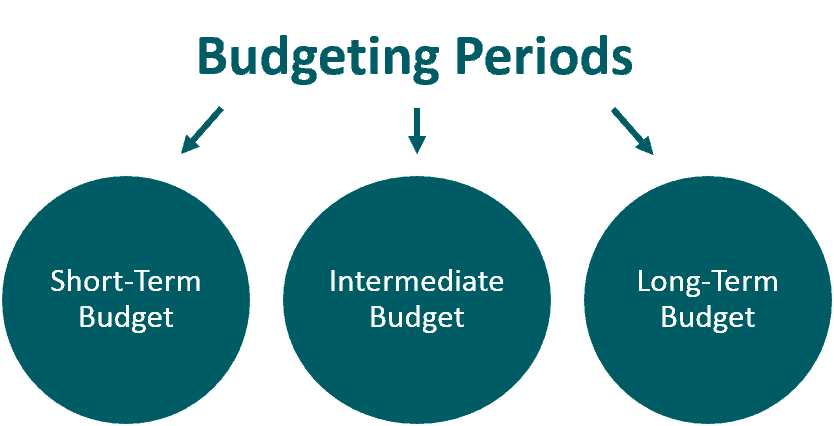What is Budgeting?

Why it’s Important to Build a Budget Plan? By budgeting, a business or an entity can boost their performance and success to a higher level. Most often CEOs use such budgeting process to track their direction, refining goals, as well as sharing the mission with the involved parties such as the partners, investors, and staff. By budgeting, it can help reveal their position in the market, control the allocation of finances, and motivate all employees to greater levels of productivity.
To list down why it’s important to build a budget, see the following reasons below:
– For financial planning
– Visibility of Financial Position
– Identify problems early on
– Preparation of mitigation strategies
– Get an insight about actionable items e.g. hire more/less people
– Save costs or unnecessary expenses
– Increase or lower prices
– Raising Capital
– and many more…
Basically, a budget is a very powerful tool for strategy and communications as it points out all factors that needed to be considered such as:
- Industry conditions
- Competition
- Degree of Risk
- Stability of Operation conditions
- Capacity limitations
- Pricing policies
- Turnover rates in assets
- Production conditions
- Product line and service considerations
- Inventory balances and condition
- Trends in the marketplace
- Number of employees and their technical abilities
- Availability and cost of raw materials
- Available physical resources
- Technological considerations
- Economy and political aspects
The above factors play different roles that are uncovered by budgeting to help reach corporate goals. This is why understanding budgeting and learning how to build a budget is critical not only for personal financing but also for business planning.
To help you get a comprehensive review about budgeting, we will discuss further below what is budgeting, what are the benefits of budgeting, what are the uses of a budget, what are the different types of budget, learn how to build a budget, and example budget plans for reference.
What is Budgeting?
When asked what is budgeting, a lot of people come up with an answer saying, to strategize how to manage money properly. Of course, in simpler terms, budgeting is indeed the process of money management, however, it can be much more than that.
Budgeting is the process of creating a plan or strategy on how to spend your money properly as it will help determine whether you have enough money to do the things you need to do or want to do. In other words, budgeting allocates funds to achieve desired outcomes and when used effectively, it becomes a great tool for systematic and productive management whether for personal financing or business planning.
It may sound simple enough as you only need to track your income and expenses over a specified period of time, however, it is much more complicated especially for a business’ budget plan.
A budget is defined as the formal expression of plans, goals, and objectives of the management that covers all aspects of operations for a designated time period. Basically, a budget is an estimation of the revenue and expenses over a specified period of time in the future and is usually compiled to be re-evaluated on a periodic basis. It is a tool that provides help in determining the best targets and direction in reaching financial success. Therefore, instead of actually implementing decisions directly, the budget plan serves as an evaluator providing alternative actions for a better decision.
A budget is known to be a financial plan to help control future operations and results. According to Wikipedia (Budget), it is a financial plan for a defined period, often one year. Of course, a budget may span any period of time but usually, a budget plan is created for short-term (one year or less). However, other budget plans span for two-three years (Intermediate) and some even long-term which are three years or more.

- Short-term Budget – provide greater detail and specifics
- Intermediate Budget – examine the projects the company is currently undertaking and start programs that are necessary to achieve long-term objectives
- Long-term Budget – very broad and thorough that is much more comprehensive and it may be translated into short-term plans
Depending on the data used to prepare the budget plan as well as the objectives, and uses, the budget period will vary as the budget period is contingent on business risk, sales and operating stability, production methods, and length of the processing cycle. Though each budget period fulfills different goals, there is a definite relationship between the long-term planning and short-term ones which is the short-term budget plan that will help move the business in the direction of accomplishing the long-term objectives.
What are the Benefits of Budgeting?
Budgeting plays a vital role in the strategic planning of a business to ensure the appropriate allocation of financial and operational activities efficiently. It is imperative that businesses carefully plan their financial affairs to achieve financial success. These plans are most often expressed as “budgets” which provides a detailed financial plan that quantifies future expectations and actions relative to acquiring and using resources.
The Most Common Uses of a Budget plan
As you already know, a budget plan is critical for planning your financials for the future, however, a budget is more than just financial numbers. There are many ways that you can use a budget plan for. See below list of benefits of budgeting:
- Financial control or the controlling of income and expenditures (the usual use)
- Establishing priorities and set targets in numerical terms
- Provide direction and coordination
- Assign responsibilities and allocating resources
- Tool for communication with employees and investors
- Monitoring performance
- Tool to motivate staff and improving efficiency
The above list is just the simplest form of uses of a budget, for business terms, you can use the following uses of a budget plan:
- Direction of financial planning – provides an outline on how to better improve the business
- Reviewing the Profitability – points out which aspects of the business that produces and uses resources the most
- Reviewing the Assumptions – re-evaluating the factors that affect the business to ensure the key assumptions
- Evaluating the Performance – setting up goals for a budgeting period such as bonuses or incentives rewarded according to performance
- Allocation of Resources – mostly in forms of cash, the allocation of cash is determined according to the profitability and feasibility of an asset/s
- Fundraising – preparing a comprehensive budget to use as a tool for communicating with interested parties such as investors or venture capitalists
- Analysis – helps with analyzing which areas that need to be cut or expand as well as providing data for proper allocation of resources
18 Types of Budgeting
In essence, a budget plan is basically a strategic plan that helps with managing the resources. However, this doesn’t mean that all budget plans are the same. There are two major types of budgeting according to user, one for corporate users (Corporate Budget) and the other is for personal financing (Personal Budget).
As mentioned, both functions the same when it comes to tracking the financials and allocating resources. The main difference between a corporate budget and a personal budget is that the former is much more comprehensive which requires different types of budgeting plans compiled and structured in a logical system. Meanwhile, the latter, which is the personal budget, is a much simpler budget plan catered for personal financing.
Corporate Budget
It is necessary to be familiar with the various types of budgets to understand the whole picture and how these budgets interrelate. The types of budgets include:
- Master Budget
- Operating Budget
- Sales Budget
- Production Budget
- Merchandise Purchase Budget
- Direct materials Budget
- Direct Labor Budget
- Factory Overhead Budget
- Ending Finished Goods Inventory Budget
- Selling and Administrative Expense Budget
- Pro forma Income Statement
- Financial Budget
- Cash budget
- Pro forma Balance Sheet
- Static (fixed) Budget
- Flexible (expense) Budget
- Capital expenditure Budget
- Program Budget
- Incremental Budget
- Add-on Budget
- Supplemental Budget
- Bracket Budget
- Stretch Budget
- Strategic Budget
- Activity-based Budget
- Target Budget
- Rolling (continuous) Budget
- Probabilistic Budget
- Zero base Budget
To learn more about each type of budget, please read the article: Classification of Budgets and Types of Budgeting.
Personal Budget
A personal budget or also known as the home budget is a financial plan that helps allocate future personal income towards expenses, savings, and debt repayment. The personal budget plan will also be able to help the user determine if there’s a need for other sources of income to accommodate emergency expenses, retirement, family expenses, etc.
To learn more about the concepts of Personal Budgeting, please read the article: Classification of Budgets and 18 Types of Budgeting, Personal Budget Section.
If you need help with your personal financing and budgeting, check out this article too: Top 10 Ways to Budget When Broke. This article will provide you a list of tips to help you with budgeting as well as what to do with a budget plan.
How to Create a Budget Plan
A budget is a detailed quantitative plan outlining the acquisition and use of financial and other resources of an organization over some given time period. It is a tool for planning. If properly constructed, it is used as a control device. Traditionally, building a budget plan entails tracking the expenses and income, eliminating debt, then building an emergency fund.
In the case of business budgeting, a sound budget process communicates organizational goals, allocates resources, provides feedback, and motivates employees. The budgetary process should be standardized by using budget manuals, budget forms, and formal procedures.
Software, the Program Evaluation and Review Technique (PERT), and Gantt charts facilitate the budgeting process and preparation. The timetable for the budget must be kept. If the budget is a rush job, unrealistic targets may be set.
The budget process used by a company should suit its needs, be consistent with its organizational structure, and take into account human resources. The budgetary process establishes goals and policies, formulates limits, enumerates resource needs, examines specific requirements, provides flexibility, incorporates assumptions, and considers constraints. It should take into account a careful analysis of the current status of the company. The process takes longer as the complexity of the operations increase. A budget is based on past experience plus changes in light of the current environment.
The six steps in the budgeting process are:

- Setting objectives
- Analyzing available resources
- Negotiating to estimate budget components
- Coordinating and reviewing components
- Obtaining final approval
- Distributing the approved budget
This process will be helpful in case possible problems may arise. By anticipating such scenarios, solutions can then be formulated ahead of time.
To help you understand the process of how to build a budget plan, feel free to reach more the article: How to Build a Budget Planner Spreadsheet.
Download Sample Budget Plans and Excel Budget Templates
Creating a budget plan from scratch can be very too time-consuming, therefore, to help you save some time, why not download sample budget plans or Excel budget templates? These sample budget plans are ready-made by financial modeling experts as such, you can take advantage of their know-how when it comes to building a budget professionally. These Excel budget templates are also downloaded by different kinds of entities all over the world such as in the U.S.A, Germany, France, Japan, Australia, and many more.
Simply check the list below for more FREE sample budget plans and Excel Budget Templates.
No Downloads found
